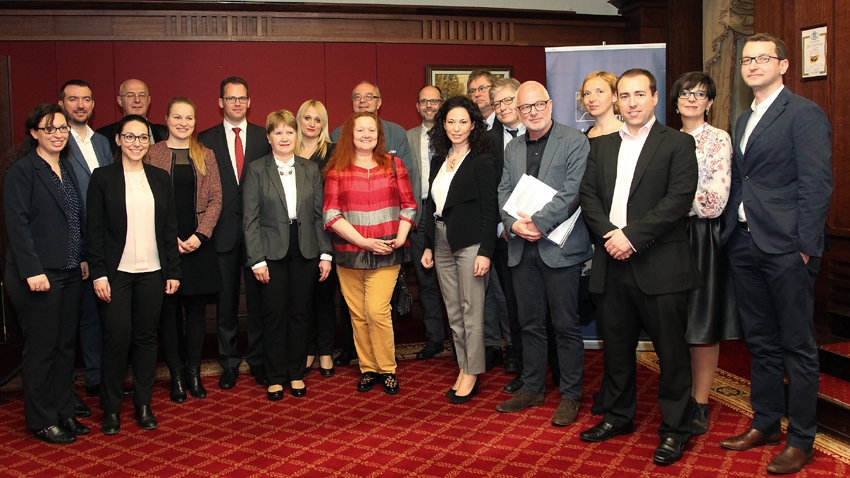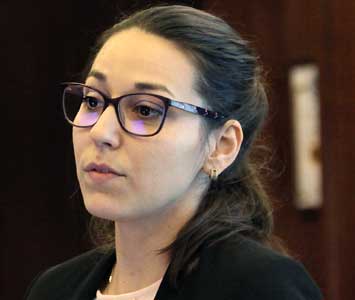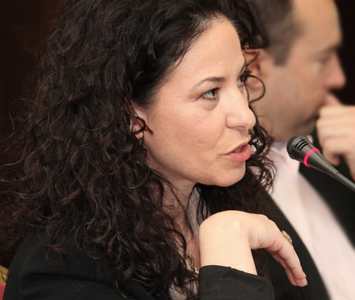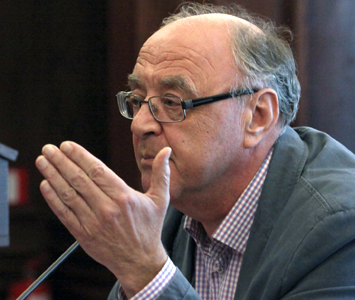The digital revolution, the economic crisis and the growing influence of social media represent the biggest challenges to traditional media outlets. Seeking to encourage dialogue on these burning issues, the Media Program Southeast Europe of Konrad-Adenauer-Stiftung held an international conference in Sofia on 28 March. Journalists, scholars, media business representatives and officials from institutions from 12 countries joined the event. It discussed a survey about today's state-of-the-art journalism training held among 531 university students from Bulgaria, Romania, Croatia and Albania. 
For more than ten years the Media Program has provided support to independent and good-quality journalism in SEE as a key prerequisite for the development of democracy in the region. More about the survey from the Media Program Director Christian Spahr:
The survey suggests that the profession has feminized. About other relevant feedback from students we talked to the Media Program Communications Manager and editor of the publication Manuela Zlateva:
 „One interesting outcome is that 34% are willing to study journalism because this is their dream. The same share of students read journalism out of their desire to explore socially relevant or political issues. This suggests a rather idealized notion of the profession of a journalist. On the other hand, asked whether they want to work as journalists, 50% of students reply they would prefer to work in PR or wherever they get the chance to start. Where Bulgaria is concerned, 60% want to become journalists which is a very good result compared to the other of the region's countries.”
„One interesting outcome is that 34% are willing to study journalism because this is their dream. The same share of students read journalism out of their desire to explore socially relevant or political issues. This suggests a rather idealized notion of the profession of a journalist. On the other hand, asked whether they want to work as journalists, 50% of students reply they would prefer to work in PR or wherever they get the chance to start. Where Bulgaria is concerned, 60% want to become journalists which is a very good result compared to the other of the region's countries.”
More often than not, students are much more fluent in new technology than their professors but the latter's role is to introduce their young colleagues to the high professional standards which have become rare in today's “copy/paste” style in journalism. According to Dr. Jonila Godole from Tirana University, the region's media market is small however dynamic.
 „The number of registered electronic media outlets in Albania currently exceeds 250. This looks fine at a cursory glance but there is good reason to be concerned over their overall quality and the lack of professional journalism. We should bear in mind that the media had to adapt fast to the new system and to their new role of mediators between politics, the business and society.”
„The number of registered electronic media outlets in Albania currently exceeds 250. This looks fine at a cursory glance but there is good reason to be concerned over their overall quality and the lack of professional journalism. We should bear in mind that the media had to adapt fast to the new system and to their new role of mediators between politics, the business and society.”
Prof. Miroljub Radojković from Belgrade University points to a trend of a decline in the number of students:
 „Professional training in Serbia peaked five years ago - we had close to eight state and private universities training in journalism. Now there are only three state and one private ones left, because the number of students has steadily declined. Faced with fewer and fewer advertisers, media outlets have been forced to cut costs including layoffs of journalists. On the other hand, in the context of the new technology today's journalist should be able to do everything - write, record and take pictures, edit and make audio files. This means a few professions related to journalism have died out. As a result many journalists have lost their jobs and this has automatically cut the wages of the newly appointed and has hurt the attractiveness of the profession.” In the view of Prof. Radojković the growing role of citizen journalism must not and cannot replace professional journalism.
„Professional training in Serbia peaked five years ago - we had close to eight state and private universities training in journalism. Now there are only three state and one private ones left, because the number of students has steadily declined. Faced with fewer and fewer advertisers, media outlets have been forced to cut costs including layoffs of journalists. On the other hand, in the context of the new technology today's journalist should be able to do everything - write, record and take pictures, edit and make audio files. This means a few professions related to journalism have died out. As a result many journalists have lost their jobs and this has automatically cut the wages of the newly appointed and has hurt the attractiveness of the profession.” In the view of Prof. Radojković the growing role of citizen journalism must not and cannot replace professional journalism.
The professor terms amateurs gathering sensations with their mobile phones “pokemon journalists” but he detects a few risks arising from their activity:
„Citizen journalism generates a lot of risk, since this involves writing without responsibility. The real author is often unknown so there is no threat of litigation, but above all there is no ethics in place. The only way for professional journalism to survive is by returning to its paramount ideals - serving the truth, being topical and correct and sticking to the code of professional ethics.”
English Daniela Konstantinova
"We cannot escape from modern technologies, but we must think about how we can use artificial intelligence to improve the quality of education without losing human contact," said Mimi Nicheva, head of the Bulgarian Sunday School "Sts...
Nearly two centuries ago, in the distant 1838, the Bessarabian Archbishop Dmitry Kishinev and Khotinsky consecrated the magnificent Orthodox church "The Holy Transfiguration of the Lord" , built with voluntary donations and labor by the Bulgarian..
Bringing youthful energy, colour and cheer to the Bulgarian National Radio studio, students from the Bulgarian Sunday School Dr Petar Beron arrived from Larnaca. The group from Cyprus — 16 pupils aged between 14 and 19 — is currently on a week-long..
Under the motto "Responsibility, Unity and Security" on November 5 and 6, 2025, a German-Bulgarian seminar for journalists and public..
The European Commission praise s Montenegro’s progress toward EU membership North Macedonia needs decisive action and reforms to begin..
Everyone knows that as soon as temperatures start going down it is pickle-making season. Making preserves at home is a time-honoured and widespread..

+359 2 9336 661
